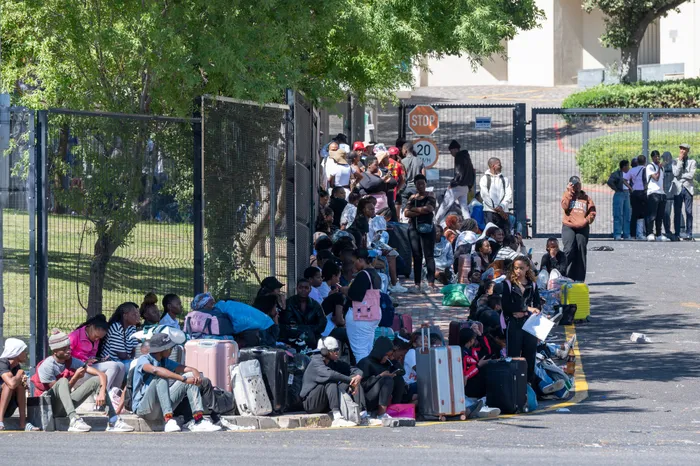NSFAS blames R10.6 billion oversubscription for student registration crisis

NSFAS board chairperson Karen Stander has blamed a R10.6 billion funding shortfall for widespread registration delays at South African universities for the 2025 academic year.
Image: Armand Hough/Independent Newspapers
National Student Financial Aid Scheme (NSFAS) board chairperson Karen Stander has blamed an R10.6 billion oversubscription in university funding for widespread student registration issues during the 2025 academic year.
Speaking at a media briefing in Pretoria on Wednesday afternoon, Stander provided updates on the 2025 application cycle, student allowance disbursements, ICT system upgrades, and the appeals process.
She said payments to universities were processed promptly, ensuring the timely disbursement of allowances and supporting academic continuity.
However, she confirmed that in March 2025, NSFAS disclosed to Parliament that its university funding for the year had been oversubscribed by R10.6 billion.
Stander attributed the shortfall to several key factors, including a growing number of qualifying students, the ongoing cost-of-living crisis, expanding household eligibility, and a decline in state resources in real terms.
“Section 14(3) of the NSFAS Act explicitly prohibits overspending beyond the allocated budget,” Stander noted.
She said as a result of the budget deficit, several categories of students were unable to register.
-University students who applied during the TVET application cycle
-Students whose registration data was submitted after the March 31 cut-off
-Approved appeals that cannot be funded
-Second-semester registrations
-Second-semester first-time entries
“Working with the Department of Higher Education and Training and the National Treasury, we remain committed to ensuring that no student is unfairly excluded,” said Stander.
She said NSFAS has submitted a request for approval to use alternative funds to address the shortfall.
The briefing comes after mounting criticism over NSFAS’s operational failures, which have affected thousands of students at universities and TVET colleges.
Delays in allowance disbursements, unresolved applications, and communication breakdowns have left many students struggling to access basic needs like food and accommodation.
Concerns have also been raised over the quality and safety of NSFAS-accredited student accommodation, with complaints about inadequate sanitation, poor infrastructure and security risks.
Stander said that the funding crisis was not a request for a bail-out.
“This is a shortfall, not a bail-out. The new board and acting CEO are committed to correcting this course,” she said.
“We must face the truth: the root cause lies in a funding model that promised more than the resources available, without adjusting eligibility criteria accordingly.”
She said the board had approved new institutional policies and eligibility strategies to ensure that, from the next academic year, NSFAS remains within budget while continuing to support the most financially vulnerable students.
Despite the ongoing shortfall, Stander provided a breakdown of the 2025 university and TVET college allocations:
Universties:
-Total allocation: R39.30 billion
-Total paid to date (including upfront payments): R28.86 billion
-Allocation balance: R10.43 billion
-Percentage utilised: 73.45%
-Funding shortfall: R10.06 billion
“Universities have utilised over 73% of their allocated funding,” she said.
“However, a funding shortfall of R10.4 billion remains. NSFAS is in the process of obtaining the required approvals to fund this.”
TVET Colleges:
-Total allocation: R9.12 billion
-Total paid to date: R6.44 billion
-Allocation balance: R2.68 billion
-Percentage utilised: 70.62%
-Funding shortfall: R1.61 billion
She said payments were made to 783,035 students, comprising 576,762 university students and 206,273 TVET students.
Meanwhile, Stander acknowledged the ongoing challenges in allowance disbursements and said NSFAS was actively working to strengthen its systems.
“Enhancing this system is essential to ensure students receive their allowances promptly and without delays,” she said.
She said the effort forms part of the Department of Higher Education and Training’s Comprehensive Student Funding Model, which aims to extend support beyond traditional bursaries to include “missing middle” students and postgraduates pursuing NQF Level 8 qualifications.
“These graduates are critical for the economy, as they feed into professional designations and scarce skills pipelines that South Africa urgently needs,” Stander said.
IOL News